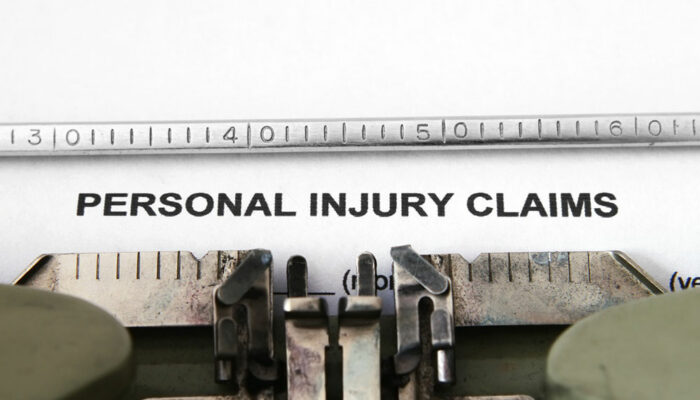8 important things to know about personal injury law claims

Personal injury law is a vital component of our nation’s legal system. Many also call it tort law. It was designed to protect people’s rights and compensate them if they face mental or physical harm because of someone else’s negligence or intentional actions. It’s very important to understand the nuances of personal injury law and learn to make correct claims. Doing so helps navigate the legal landscape after an unfortunate incident.
Important things to know about personal injury law claims
Under personal injury law, one can make a legal claim in a state or federal court and recover monetary damages against any harm. These claims can be against an individual, company, or entity, including a government agency or an NGO. Here are a few interesting facts about these claims:
1. The claims can be varied
The most common time when people use personal injury law is when they are involved in automobile accidents. But there are also other scenarios and incidents where one can make claims under tort law. Here are some of them:
Medical malpractices
Let’s suppose a person has experienced some physical harm because of a doctor’s negligence. In this scenario, the individual can ask for compensation not just against the practitioner but also the hospital and the clinic staff. Something called “vicarious liability” or secondary liability is applied here, which holds the hospital responsible for one party’s negligence.
Product defect
It encompasses any products with faulty manufacturing that lead to accidents and injury. This category falls under the “strict liability” claims, and the law holds the company responsible for any losses.
Intentional harm
In cases of intentional harm, individuals have the right to pursue compensation under personal injury laws. This encompasses incidents such as assault and battery.
Apart from these, the following incidences also fall on the radar of the law:
Dog attacks
Injuries at workplace
Slips or falls due to snow, ice, liquid spills, or unsafe conditions on any property
Major accidents at construction sites due to negligence
Police misconduct
Emotional damage or distress due to any circumstances, like false accusations, defamation, and more
2. Evidence matters
When someone gets hurt, the law looks into whether the person who might be responsible was careless. The thumb rule to get personal injury claims is to prove that one’s accident, loss, or distress is the direct result of the negligence of the other party. The level of carelessness, or negligence, decides if they are legally at fault for the injury. This serves as a key factor in determining legal responsibility for injuries.
3. The final dealings are done with the insurance company
It doesn’t matter which party or entity one decides to make claims against. In any case, the final monetary dealings usually happen with an insurance company. According to the policy limits, a policyholder will get coverage for any damages done to their automobile, business, property, or physical health.
4. The initial offer from the insurance company is negotiable
Insurance companies are known to limit their claim and payout for damages in their initial offer. So, accepting it as a final one may be a mistake. It’s important to discuss the extent of damage and its monetary implications with one’s lawyer. One needs to remember that the insurance company is established to compensate not just the medical bills and immediate physical damages but also the loss of one’s future earning power or lost wages and emotional distress. It’s usually difficult to quantify these aspects in monetary terms, but one can get additional benefits for them under punitive damages from the defendant.
5. There’s no need for a trial
The need to go for a trial varies from case to case. If the insurance company is willing to settle one’s claim for the agreed and negotiated amount, there might not be a need to go on trial. Most cases of wrongful death or negligence are settled out of court because this is often the fastest and most hassle-free way to settle a dispute. In case one is denied claims, however, one can file a civil lawsuit against the defendant.
6. An experienced lawyer is a must
Hiring a personal injury lawyer to secure claims is important since the process can be emotionally and physically taxing on the plaintiff. A lawyer is trained for legal representation and can properly leverage fresh evidence and witness statements. They also recognize lowball offers from insurance companies and ensure that the plaintiff gets sufficient claims. Moreover, some states limit the extent of compensation against punitive or non-economic damages. In such cases, an experienced lawyer can help understand these limits and get the maximum possible compensation. One is advised to share all the related information with one’s lawyer since evidence plays a pivotal role in the courtroom.
7. Lawyers are usually compensated in two ways
There are usually two ways in which one’s lawyer gets paid. One is through a fee on an hourly basis, and the other is a contingency payment. It’s important to have clear communication about the fees with a legal representative to avoid any misunderstandings later.
8. Personal injury claims require patience
While most claims settled out of the courtroom may finish within a few months, some take longer than that. Usually, medical procedures, treatment, investigation, court backlog, claim limitations, administrative or legal paperwork, and other case complexity may lead to this delay. So, one is advised to be patient with personal injury cases.





